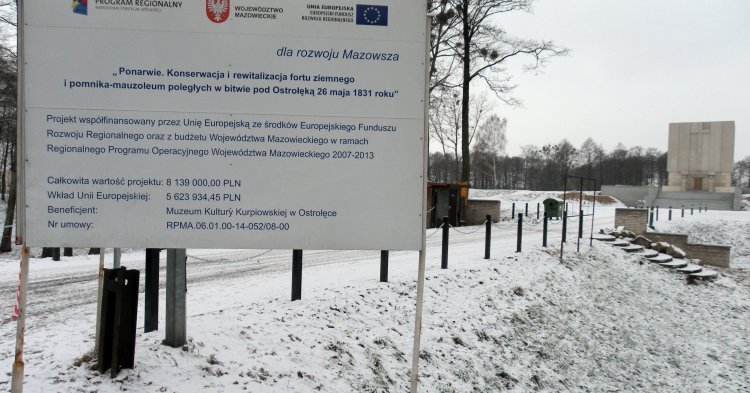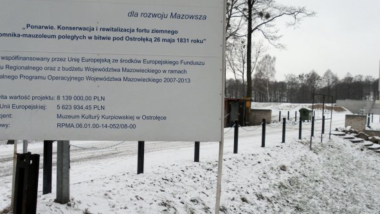The MFF - the Most Ferocious Fight
When Member States talk about the ‘MFF’ it always gets controversial… but no, it does not stand for the ‘Most Ferocious Fight’. Rather, it stands for the ‘multiannual financial framework’, which lays down the amount of money that can be spent in different areas and the conditions under which this money is spent for several years. As the current MFF is running out in 2020, preparations for the next programming periods have started. In this context, there is a debate whether EU funds could be used to sanction Member States who are not in full compliance with European values as defined in Article 2 TEU. This is, for instance, the position that JEF Europe has recently endorsed in its resolution on the next MFF.
This idea has repeatedly been raised over the last months, following concerns about a possible breach of the rule of law in Poland and Hungary. Günther Oettinger, the European Commissioner for Budget, has indicated that he might be in favour of installing such a mechanism for the next multi-annual framework. Also, the outgoing German government has suggested in a position paper on the future of cohesion policy that the Commission should consider whether it would be possible to make EU funds conditional on the respect of principles of rule of law.
Why are we against this idea?
We think that it is not a good idea. First, suspending EU funds would affect the wrong people. In the case of cohesion policy, for instance, funds are distributed to reduce disparities between the various regions, and especially to support the least-favoured regions. They would be the first to suffer, if funds were to be suspended. Citizens in these regions would be sanctioned for the behaviour of their national government. Do you think it would be right to cut funds aimed at building railways or funding research projects for Polish citizens because the government has implemented controversial laws to reform their judiciary system?
Second, cutting EU funds would fuel more anti-European sentiments. It would not be difficult for the governments to instrumentalise these sanctions to point at Brussels. As the effects of cutting funds would be immediately felt at the local level, such accusations would quickly find open ears. Moreover, countries that are more reliant on structural funds, such as Poland or Hungary, would be affected more strongly by such a mechanism than countries such as the Netherlands or Austria. A sense of unfair treatment would be inevitable. As the President of the Commission Jean-Claude Juncker has rightly pointed out, withholding EU funds would further divide the European Union and become „poison for the continent“.
Finding alternatives (1): Political Sanctions
There is already a mechanism to sanction Member States which do not comply with European values, such as the rule of law. This mechanism is set out in Article 7 TEU: If the European Commission determines that a serious and persistent breach of these values has occurred, the European Council may decide to suspend the rights of the Member States, including voting rights of the representatives of that country in the Council.
This procedure has already been activated by the Commission with regards to the proposed reforms of the judiciary in Poland. Moreover, the European Parliament is preparing a report to consider whether it should ask the Commission to launch this procedure for Hungary as well. Now, it is true that this mechanism is very time consuming and has a lot of thresholds, such as having to take a unanimous decision in the European Council. But does it mean that the mechanism is useless?
By no means! Political sanctions are much more efficient in targeting national governments who are responsible for the breach of European values. If the voting rights in the Council were to be suspended for one country, the citizens would not be the ones to carry the costs in the first place. And besides this, the procedure can be used to exert considerable pressure on the governments, insofar as it launches a far-reaching public debate and investigations to assess the scale of the infringement on European values.
As to the complexity and long duration of the procedure, nothing guarantees that an additional mechanism would be easier to implement. Given that the Member States would have to agree on it in the first place to implement such a new mechanism, the thresholds would probably be just as high. Instead of looking for additional tools, we should therefore think about how to improve the procedure that is already in place.
Finding alternatives (2): Getting the European Court of Justice involved
Another remedy to the cumbersome mechanism behind Article 7 and the high thresholds would be to bring into play the European Court of Justice. The European Court of Justice can already impose financial penalties in the context of the infringement procedure. Ruling over an alleged breach of European values would be different from individual infringement actions, however, where EU legislation was not implemented correctly. A new approach would be needed to rule over the compliance with Article 2. For instance, a group of individual infringement actions could be grouped together in order to form what was suggested by Prof. Scheppele as a „systemic infringement action“.
Involving the European Court of Justice would have the advantage to help to overcome the potential political gridlocks that are entailed by the unanimity requirement in Article 7. The Court could act as an independent actor that would not be driven by political intentions. What is more, it could issue fines when a breach of Article 2 has been found, which – in contrast to withholding EU funds – would be directly targeted at the governments.
No to more disunity!
The disunity among the countries in the European Union has become considerable over recent years. Rightwing populist movements who are trying to undermine European unity are becoming more and more popular. In the United Kingdom, they have even managed to make their country leave the Union. Meanwhile, the lack of solidarity has become evident in the refugee crisis, in matters of energy security (see Nord Stream II) or during the economic crisis. Unsurprisingly, the word ’solidarity’ has almost vanished from public discourse in Europe.
Coming back to sanctions, the European Parliament has adopted a resolution to call on the Commission to start a dialogue with the Maltese government on the rule of law and held a debate on the rule of law in Poland during its last plenary session in November. At the same time, the LIBE committee is preparing a report to potentially ask for the activation of the rule of law procedure for Hungary. The game of reciprocal accusations and pointing at each other has started. We, the authors of this article, are worried that additional sanction mechanism would only fuel this insidious game. We therefore encourage JEF to not give in into this game and think about alternatives on how to ensure the respect of European values in the EU.



Follow the comments: |
|
